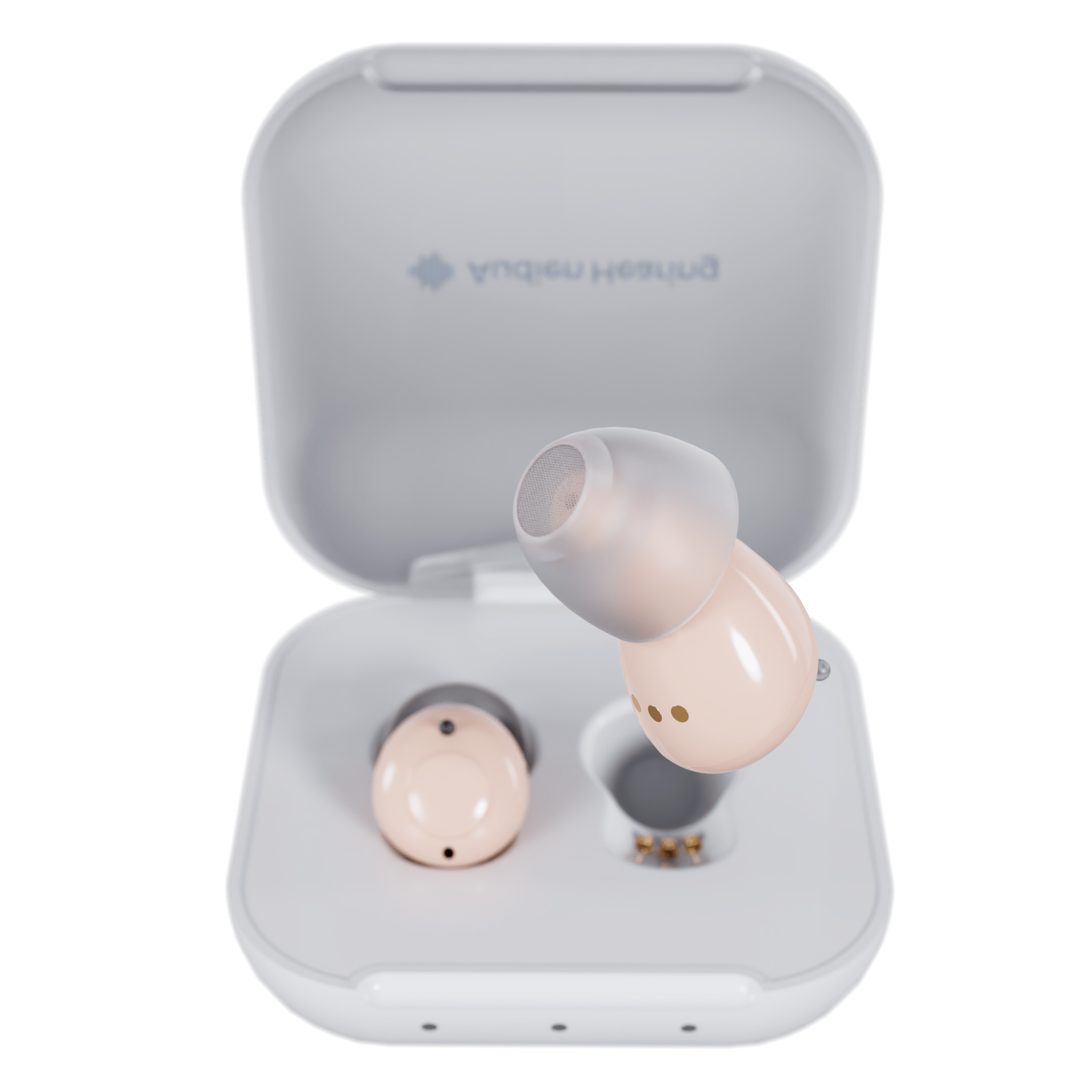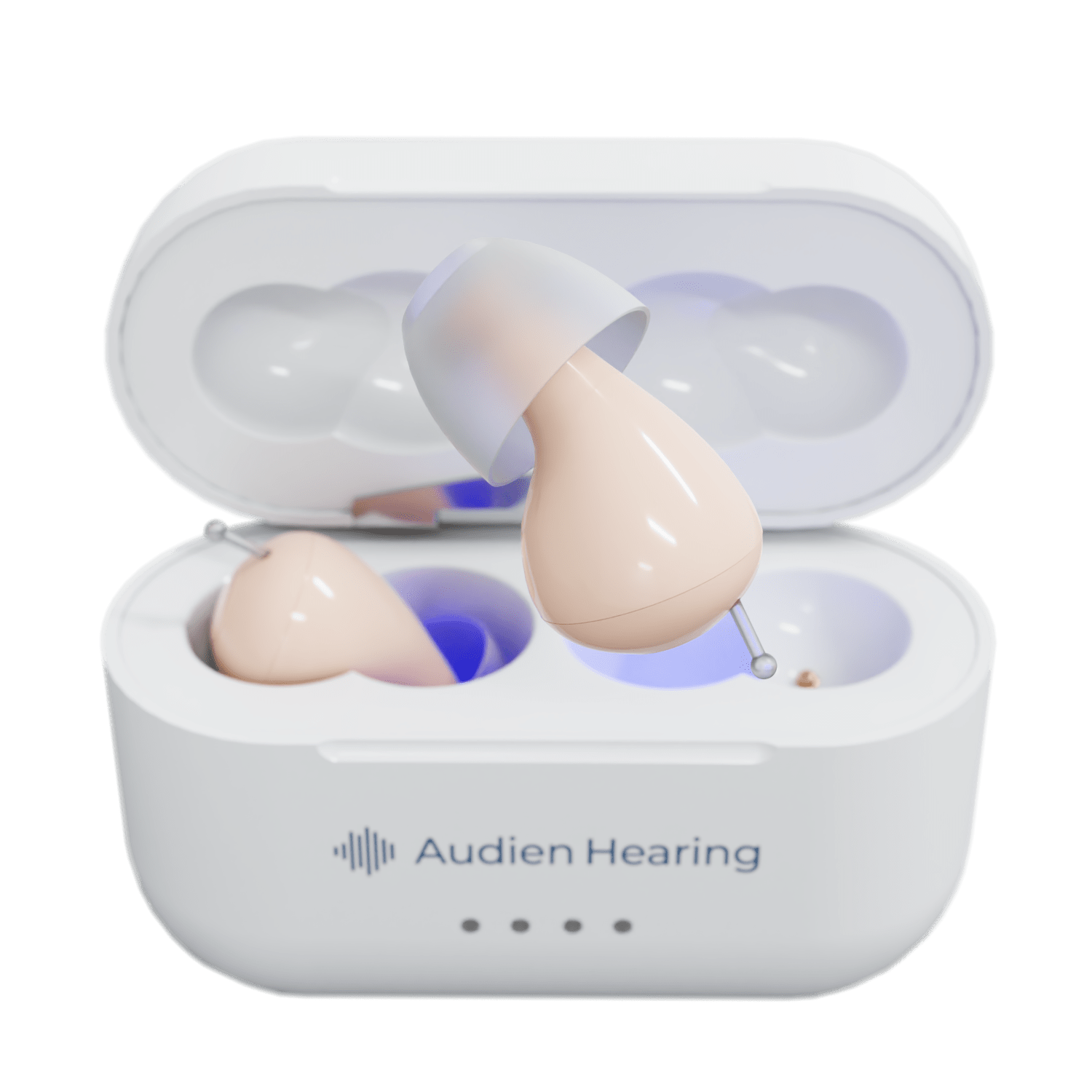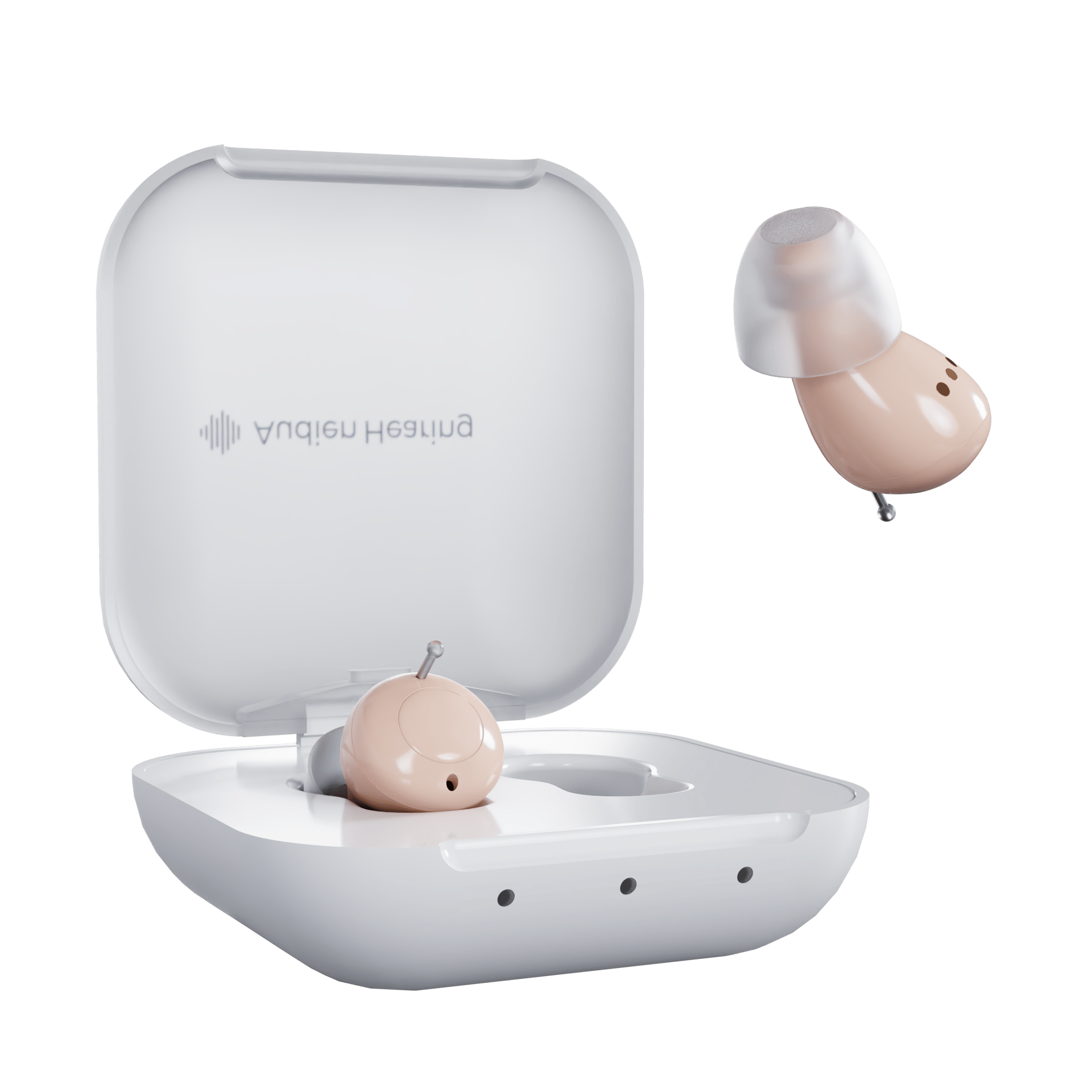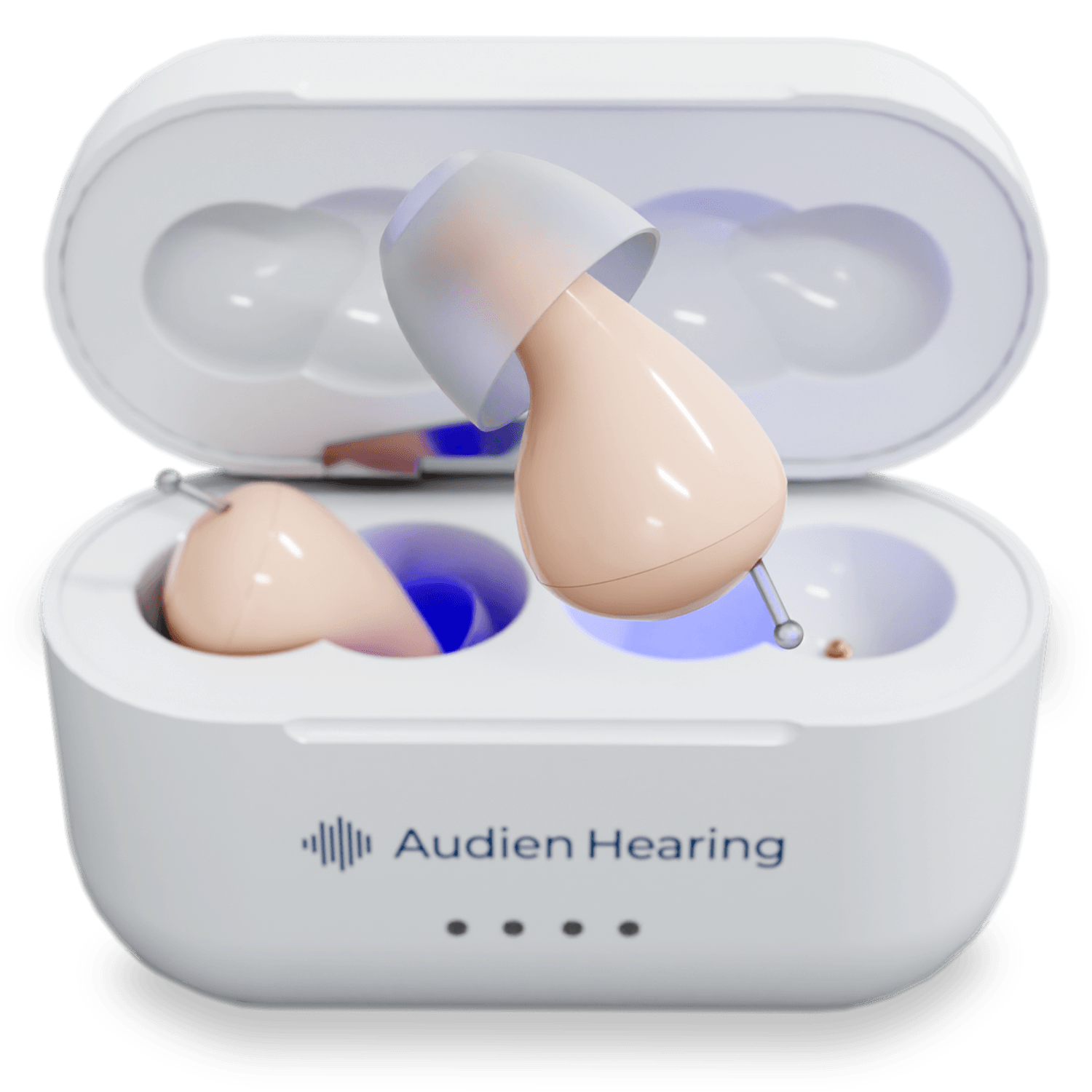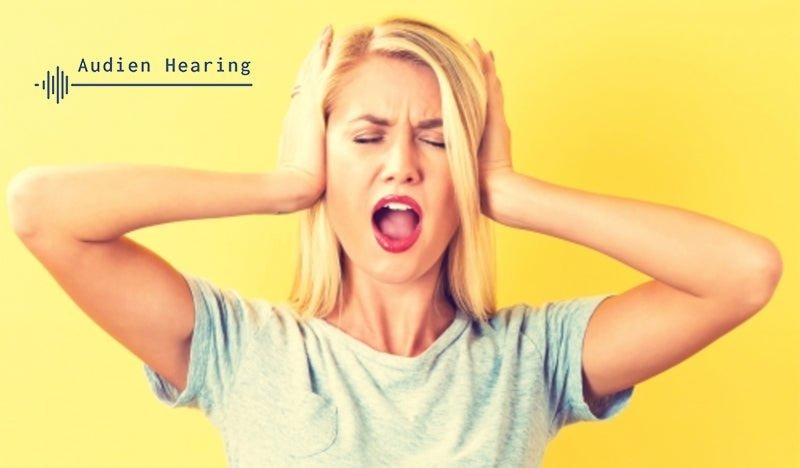
Recent studies have shown that about 26 million adults and 5.2 million children suffer permanent hearing loss from excessive noise exposure. Exposure to loud noises can damage the hair cells and auditory nerves in the inner ear and trigger sensorineural hearing loss.
Because our hearing matters to us, the impact of hearing loss should not be ignored or underestimated. Damage to any part of our ear can cause hearing loss and affect our ability to communicate with friends and loved ones.
This article will discuss dangerous noise levels, noise-induced hearing loss, and how you can prevent it.
Hearing, Sound Level, and Auditory Threshold

The cochlea contains the sensory hearing organ and plays a key role for people with normal hearing. When our cochlea works perfectly, it receives sound waves, converts them into signals, and passes them on to the brain. Our brain analyzes the signals and interprets them into sounds we hear and understand, such as human voice, soft music, rock or metal music, and horn honking.
How Are Sound Waves Created?
Sound waves are created when an object vibrates or moves. For instance, when your favorite musician strikes the guitar string, blows his trumpets, or sings into his microphones, the strings or speakers vibrate and generate sound waves.
Whether we hear these sounds depends on
- The pressure level or power of the sound and
- The vibration or frequency of the sound
Sound Level and Sound Frequency
The sound pressure level determines the loudness or volume of sound. The higher the sound level, the louder the sound.
Sound pressure levels are measured in decibels (dB). On the decibel scale, a 10db increase in sound level means that a sound is ten times more powerful or intense. Under normal conditions, people with normal hearing should detect sound levels between minus 10 to 15 decibels.
The frequency of sound is measured in Hertz (Hz) and refers to the sound vibrations’ speed. Moreso, sound frequency also determines how high or low the sound pitch will be.
Our ears detect or respond to sound at frequencies between 20Hz and 20,000 Hz. But, below 20Hz, we are deaf to sounds. If you are unsure of your vicinity’s sound levels, you can use a sound decibel meter to measure them. Knowing the sound levels in your environment will enable you to identify if the sound level is healthy for your ear or not.
Hearing Threshold
Sound must be above a certain level for us to hear it. This level is known as the hearing or auditory threshold. Below the hearing threshold, our ears cannot detect any sound.
For adults, the reference level for the auditory threshold is zero decibels. Above this threshold, sound levels are louder.
Let's take a look at some of the sound levels around us.
Quiet conversations have sound levels of 40dB, while regular conversations are between 50 to 60 dB. Traffic noises in urban areas can be as high as 80 dB, while noises in industrial areas are as loud as 100 dB.
Deafening music at a nightclub or rock concert is about 120 dB and shares the same sound level as a thunderstrike. Jet and aircraft engines have sound levels as high as 140dB.
Sound levels above 85dB are considered dangerous. And if you are exposed to it for a long time, you can experience chronic ear damage. Noise levels louder than 130 dB can lead to acute hearing loss.
When the sound pressure level is higher than 110 dB, you have reached the Threshold of Discomfort. And at this level, hearing becomes uncomfortable. Similarly, when the sound is above 130dB, you have hit the Threshold of Pain, and hearing becomes painful at this level.
Noise-Induced Hearing Loss

Noise-induced hearing loss occurs when the tiny hair cells in the inner ear suffer irreparable damage due to loud noise exposure. When this happens, you may be unable to hear in one ear or both.
Hearing loss may occur due to a single traumatic exposure to loud sounds like explosives, bombs, and firecrackers. The louder the sound, the shorter the time it takes for you to lose your hearing.
Hearing loss can result from damage caused by long-term or repeated exposure to loud noise. The longer you stay around loud noise, the greater the risk of losing your hearing. The condition is worse if you are not using hearing protective devices or taking breaks from the noise.
Sounds within 0dB to 70dB are safe and moderate for listening at any period. For example, vacuum cleaners, alarm clocks, and group conversations, and dishwashers are within 70 to 75dB but can be irritating.
Moreso sounds above 80 to 85 decibels pose a severe threat to your hearing if exposed to it for two hours. Noise at 95 decibels can damage your hearing after 50 minutes of exposure. Sounds from sporting events and concerts between 100 to 110 decibels are extremely loud and can affect your hearing after ten or 15 minutes of exposure.
Sirens, pneumatic drills, and jet take-offs (120-130 decibels) are painful steady noises that are unsafe at any period. Similarly, noises from firecrackers, firearms, and fireworks are painful impulse noises that cause sensorineural hearing within a few seconds.
Degree of Hearing Loss
Hearing loss patients have different auditory thresholds. For some, their hearing loss may be mild, while others may be severe. The severity of your hearing loss depends on how loud sounds must be for you to hear.
So, if you notice changes in your hearing, your audiologists may carry out hearing tests to determine if your hearing loss is mild or severe. You can also use your noise level app to check the noise level and determine the degree of your hearing loss.
Here's a simple way to classify your hearing loss.
Normal Hearing
Your hearing is normal if you can hear sounds between minus ten to 15 decibels. If your hearing falls within this category, please take preventive measures to keep your hearing healthy.
Mild Hearing Loss
If you can only hear sounds between 16 to 25 decibels, you have slight hearing loss. Patients with mild hearing loss cannot listen to sounds, except they reach 26 to 40 decibels. Unfortunately, they cannot hear whispers or even refrigerator hum.
Moderate Hearing Loss
You have a moderate hearing loss if sounds must be between 41 to 50 dB before you hear them. Moderately severe hearing loss patients can only detect sound at levels ranging from 56 to 70 decibels. Patients that fall into this category typically have trouble hearing when there is background noise. And in most cases, they may need to tilt their ear to the sound source or ask you to repeat your speech.
Severe Hearing Loss
If you cannot hear sounds except they are between 71 to 90 decibels, then your hearing loss is severe. You may need to rely on hearing aids to listen and communicate with loved ones.
Profound Hearing Loss
Patients with profound hearing loss can only hear sounds above 91 decibels. In most cases, hearing aids may not restore hearing, and so patients may need to learn sign language or lip reading to communicate.
How Loud is Too Loud?

Hearing loss happens so gradually that you may not notice until it creeps in on you. And the more you ignore dangerous sound levels around you, the closer you are to losing your hearing.
I bet you don't always carry a sound level meter with you. And even when you do, you don't bother to check if the sound in that area is safe for you.
Here are some of the common signs that indicate that the sound or noises are too loud.
- If you must scream at the top of your voice to be heard, or you can't hear or understand someone that is a few meters away from you, then the noise levels are dangerous for your ear.
- If you experience tinnitus (painful ringing and buzzing sounds in your ear) after leaving a noisy environment, the noise can damage your hearing.
- Lastly, if the sound or speech around you seems muffled, dull, and unclear after you leave a noisy area, then you shouldn't be in such a place without hearing protective devices.
What Are the Common Causes of Noise-Induced Hearing Loss?
Household Equipment and Everyday Noise

Every day, we are exposed to noises from household equipment and appliances like blenders, dishwashers, lawnmowers, snowblowers, and leafblowers. Some of these devices have sound pressure levels ranging from 70 to 106 decibels. And when we stay around them for long periods without breaks, our hearing nerves may suffer damage and cause sensorineural hearing loss.
Although these devices may not cause immediate harm to your ear, loss of hearing may be gradual. As you grow older, the risk of hearing loss is greater because the hair cells in your ear are weakened and cannot withstand high sound pressure levels.
Exposure to Noise at Work

Noise levels in industries like manufacturing, construction, mining, steel production are dangerous to the human ear and can damage our auditory nerves in split seconds. These industries have machinery and processes that generate noise levels above 85 decibels from sources like
- Power tools
- Drill motors
- Rotors, stators, and fans
- Chipping guns,
- Jackhammers and lawnmowers
- Turbulent fluid flow
- Vibrating panels
- Electrical machines and,
- Internal combustion engines etc.
According to the National Institute for Occupational Safety and Health (NIOSH), about 22 million workers suffer exposure to dangerous noise levels every year. Early symptoms manifest as tinnitus (disruptive ringing and buzzing sound in the ear). And after continuous exposure, it graduates into severe and profound loss of hearing.
If you work in noisy places, hearing protective devices will minimize the noise that enters your ear.
Recreational Noise

Some of the sounds you hear during leisure and pleasure moments may put your hearing in severe danger, rupture your eardrum, or cause you to lose your hearing.
Let's discuss some common examples.
Sporting Events or Tournaments
Sporting events like soccer games and athletic championships attract huge crowds. If you are a soccer fanatic like me, you will agree that the experience of watching a live game is second to none. The scream, jeers, cheers, and the sounds from whistles can damage your hearing.
If you are a motorsports fan that attends Formula 1, NASCAR, or MotoGP races, the cheers and screams from the crowd and powerful engines are loud enough to damage your hearing.
Sports cars, power bikes, and Jet-ski engines produce sounds above 100 dBA. These noise levels can trigger sensorineural hearing loss after 20 to 30 minutes of exposure.
Speakers and Personal Listening Devices
Loudspeakers and personal listening devices are a leading cause of hearing loss in young people. According to the World Health Organization, about 1.1 billion young people face the risk of hearing loss due to loud noise exposure during recreation.
It is common to see children and adults turning up their listening devices like phones, radio, or television, or MP3 devices while enjoying their favorite playlist. Loud entertainment venues like bars, nightclubs, and concerts also deliver loud music at dangerous levels.
The sound level of music on full volume on these devices falls between 100 to 110dB. At concerts, parties, and nightclubs, the sound levels are higher. And when they hit the ear for long hours, they weaken the auditory nerves and damage them over time.
Most musicians and entertainers have had to deal with the impact of long term exposure to loud noise during studio production, rehearsals, and concerts.
Eric Clapton blames his hearing loss on turning up the amplifiers during his youth. He regrets not heeding warnings to wear earplugs or turn down the volume. Other musicians that have hearing loss include
- Christopher Martin of the Coldplay
- Peter Townshend
- Phil Collins
- Neil Young and many more
Music is fun. But there are ways you can protect yourself from hearing loss.
- Reduce the volume of your listening devices
- Buy and use noise-canceling headsets.
- Take breaks from your headsets at frequent intervals.
Firearms and Explosive Devices
Generally, the use of handguns fall into one of five categories, including
- Recreation
- Sport,
- Hunting,
- Metallic silhouette shooting, and
- Protection.
Whether they are used for hunting or target practice, firearms have sound pressure levels that exceed 132db. And it is unreasonable for you to fire any shot without wearing protective hearing equipment. Exposure to such sound levels can trigger acoustic trauma and sensorineural hearing loss.
Exposure During Military Service

Hearing loss is the most prevalent service-related disability for veterans and ex-servicemen. In 2012, about 5.8 percent of veterans received compensation and benefits for hearing loss.
During military service and peacekeeping operations, service members are exposed to loud noise from weapons, bombs, grenades, and other explosives, gunfire, and heavy military equipment. As a result of these weapons fired at close range, they may have sensorineural hearing loss.
Ship and aircraft engine rooms, patrol vessels, missile gunboats, and carrier decks have dangerous sound levels ranging from 98 to 160 dB. And long term exposure can stretch the inner ear cells beyond their elastic limits and cause permanent damage to the ear.
How To Prevent Noise-Induced Hearing Loss

Sensorineural hearing loss doesn't have any known cure. So it's important to take hearing loss prevention seriously. Here are ways you can prevent hearing loss due to loud noise.
1. Keep away from dangerously loud noise
If you have to scream before other people can hear you or hear ringing sounds after leaving a noisy place, you have to stay away from such areas.
We understand that staying away from noisy places may mean asking for too much. But if you can, then you should. It would be best if you used your headphones with caution by
- Keeping the volume at moderate levels and
- Removing the headphones at intervals
2. Wear hearing protective devices or equipment
If you work in environments like factories, industries, airports, bars, or nightclubs, you need to wear hearing protective gadgets like earplugs or earmuffs.
When you attend loud events or engage in noisy activities, you may need to
- Move far away from the direction of the loud noise.
- Take a break from the sound at different intervals.
- Wear earplugs that minimize the intensity of sound.
3. Test the sound pressure level in your environment
Just as we have mentioned, everyday noises can gradually damage your hearing. So you may need to test the sound levels in your home or work using apps like the NIOSH Sound Level Meter App.
4. Follow safety precautions at work
If you are exposed to dangerous noise levels at work, you may need to
- Wear ear protective gears, like earmuffs and earplugs
- Move away from the noise at intervals.
- Avoid exposure for long hours and
- Switch to less noisy equipment, if possible.
5. Get regular hearing checks up
Frequent hearing tests and evaluation is essential, especially if you work in places where noise levels are over the top. Comprehensive hearing tests will provide baseline information about your hearing status, hearing defects, and changes over time.
Treatment for Hearing Loss due to Loud Noise

Dangerous noise levels may trigger a sensorineural hearing loss in adults and children. Unfortunately, there is no cure. But, there are treatment options that can help you improve your hearing and mental well-being.
Let's take a look at some of them.
Use of Hearing Aids
Hearing aids are sound amplification devices that enable mild, moderate, and severe hearing loss patients to hear and communicate better. The device collects sound from the environment, amplifies it, and transmits it to the inner ear so that you can listen to sounds.
After hearing evaluations, your audiologists will recommend a hearing aid that fits your hearing loss profile and lifestyle.
Cochlear Implants
Cochlear implants also help to improve hearing for people that lost their hearing. Unlike hearing aids that are worn, cochlear implants are surgically implanted in the ear. They are mostly recommended for patients that may not benefit from using hearing aids.
Sign Language and Lipreading
Patients who do not benefit from hearing aids and cochlear implants may need to learn lipreading and sign language. You can use hand signs to express yourself or read people's lips to grasp what they say. You can hire a sign language tutor or learn online at your pace by taking courses or watching tutorial videos.
Final Words
There you go. We are surrounded by noises that can impact our hearing. Although these sounds may seem ordinary, long term exposure can trigger sensorineural hearing loss.
As the famous activist and educator Helen Keller once said, "Blindness cuts us off from things, but deafness cuts us off from people."
Hearing loss can rob you of the bliss of communicating with your loved ones and adversely impact your quality of life. So if your hearing is still normal or your hearing loss is mild, you need to take preventive measures seriously. If you work in noisy places, ensure you use hearing protection or take breaks from the noise at intervals.
If you notice any hearing impairment, please consult your audiologists to recommend the best treatment option for your condition.
Audien offers the right OTC hearing aid to fit your unique circumstances; we offer:
